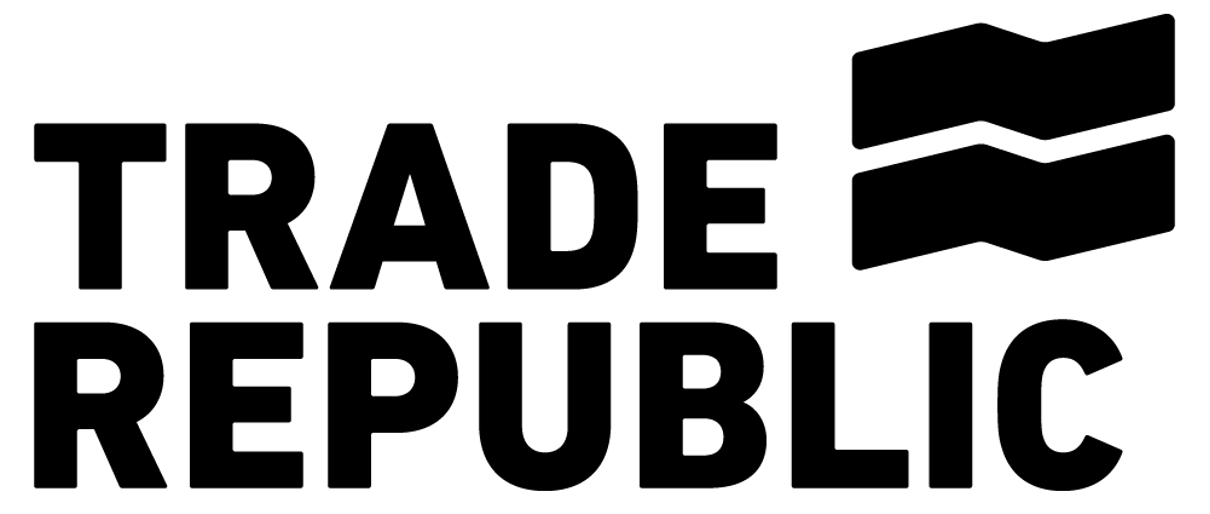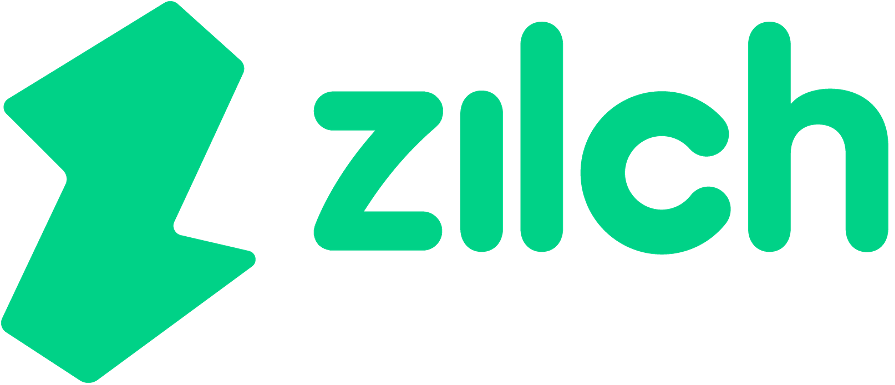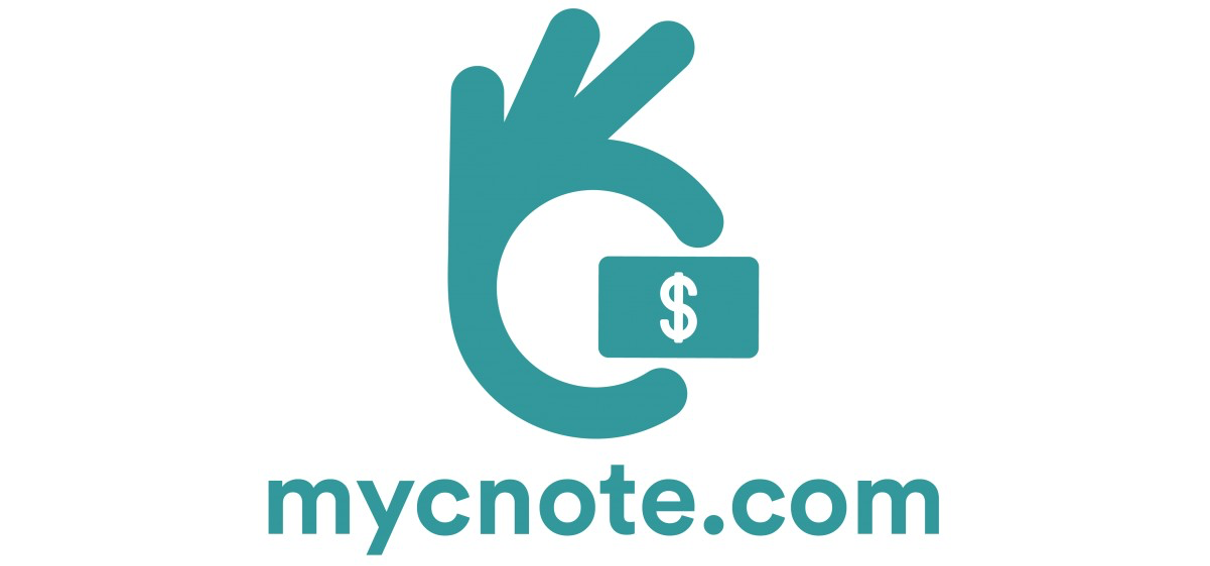Financial technology companies are set to explode this year. Here are the 5 most interesting fintech startups we’re watching the closest.
Most of us will remember 2020 as the year that Covid-19 disrupted our lives, including the development of FinTech software. The FinTech industry will probably remember 2020 as the year that inspired countless innovations. Although the industry’s global growth slowed slightly due to the pandemic, it was already seeing a resurgence in 2021.
This rebound should come as a surprise to no one. Mobile financial solutions are more important and necessary than ever. Even if many consumers don’t know the name FinTech, they have come to expect tech-driven payment solutions in the financial sector. And FinTech startups are more than ready to continue to innovate, pushing the boundaries of what is possible.
To better understand the dynamics of this space, let’s explore the 15 top FinTech companies that you need to be paying attention to in 2024 and beyond.
In this article:
What Is A FinTech Startup?
Let’s address the elephant in the room: to a lot of people, the name “FinTech” probably sounds like some made-up, inaccessible corporate jargon intended to make cryptocurrency traders feel more mainstream. In reality, FinTech is just a portmanteau of “financial technology.” It is all about using technology to improve the finance industry.
While many FinTech startups deal with emerging technologies, such as cryptocurrencies or even trading digital collectibles (such as NFTs or “non-fungible tokens”), many more attempt to make the financial sector more accessible and easier to use. For example, digital banking, investment apps, and contactless payments are all FinTech innovations. And as we move into a “new normal” of relying on digital financial services, FinTech startups are poised to explode. In fact, in just the first quarter of 2022, FinTech funding surpassed $13.4 billion.
How Do FinTech Startups Make Money?
One key question that faces every startup is, “how do you plan on making money?” FinTech startups are no exception. However, given the fact that they are in the financial sector, there are several tried and true methods to monetize a FinTech startup.
Transaction Fees
Any FinTech startup that deals with financial transactions has a straightforward revenue stream: their consumer base. The startup can take a small percentage of each transaction as a fee. Although, for this model to work as a standalone option, the startup needs to grow massively.
Robo-Advisors
Similarly, if a FinTech startup can reliably automate financial advice, they can charge a small percentage for each transaction. These so-called “robo-advisors” mean lower overhead costs for the company and significantly lower fees for the consumer (which can make investing significantly more accessible).
Subscriptions
Many companies rely on a subscription model. The principle is simple: offer a good service for free and a remarkable service for a monthly or yearly fee. This might mean additional features or access to additional live support.
Partnerships
Partnering with a major brand can be far more lucrative than just relying on revenue for the user base. Plus, it’s a win-win-win. Many brands are willing to pay big bucks to FinTech companies that can drive consumers to make purchases with them. Consumers also win in this model, since they’re getting a free experience from the FinTech startup.
Other Options
Of course, there are several other ways to make money. For example, companies can sell ad space. They could also sell user data. The possibilities are endless — it is all up to the imaginations of the startups.
The 15 Most Interesting FinTech Startups we’re keeping an eye on
Before we get to the lists of most successful FinTech startups, let’s get a couple of disclaimers out of the way. First, we’re using the term “startup” pretty liberally here. There’s a reason for that: this list is intended to sample all stages of startup life — from being a good idea to becoming a unicorn to establishing yourself as a major tech company.
Secondly, we want to cast a wide net with regard to types of startups. So, for example, Bitcoin and NFTs were exploding in 2021… but it would be shortsighted to create a list dominated by blockchain startups. After all, many other attractive things are happening in the FinTech world at the moment. In our view, an interesting financial technology startup could be focused on helping nonprofits take advantage of the digital revolution. Or it could be a promising exchange that evolves into an $85 billion giant.
Thirdly, to better understand the FinTech market in 2022, we broke up startups into several categories: Banking FinTech Startups, Payments FinTech Startups, Insurance Companies, Markets, Currency Exchange Fintech Startups, Lending & Financing Technology Startups and, Investing & Wealth Management.
Banking FinTech Startups
N26

Country: Germany
Year of Foundation: 2013
Fundraising: $900 M
N26 is a German internet bank operating without physical branches in more than 20 European countries. It provides services such as deposit opening, funds transfer, and overdraft service. Clients carry out all transactions in mobile financial software or on the bank’s official website.
In 2013, Valentin Stalf, who was then working at the Internet incubator Rocket Internet, and his friend Maximilian Teyenthal, an assistant financial director at an insurance company, decided to quit their jobs and start their own business. This is how the FinTech startup Papapayer (later renamed Number26) was born.
Initially, the entrepreneurs wanted to start a project for parents who give their children pocket money and want to be sure they spend it for its intended purpose. They hoped to give parents the financial tools to control the financial transactions of children in the application and on the website, and the electronic wallet was to be used as a regular bank account. However, six months later, entrepreneurs realized that the idea of a mobile bank was more promising for making money, and decided to implement it.
In 2014, the fledgling startup received €2 million in funding from venture capital investor Earlybird Venture Capital, according to the company. In just nine years, N26 has received more than $600 million in financial support from investors from China, Thailand and other countries.
Juni

Country: Sweden
Year of Foundation: 2020
Fundraising: $282 M
Juni is a neobank that helps online merchants deal with finances. It offers a range of products, from a lending platform to the ability to track ROI. The startup quickly expanded to the Netherlands and the UK (its largest market).
Juni is the financial companion made for e-commerce. Focus on what really matters with the features of their all-in-one platform, and make better decisions with all the knowledge and insights you need at hand.
Copper

Country: USA
Year of Foundation: 2019
Total funding: $42.3 M
Copper is a FinTech startup founded in 2019 with an eye on users aged 10 to 19. The company offers debit cards with an application that users and their parents can access. The startup helps its clients keep track of expenses and plan budgets and gives tips for those who are just starting to use the services of banks.
As a rule, parents use Copper to transfer money to teenagers and control their expenses, according to the startup. At the same time, younger users rely on Copper to make direct deposits for future savings, pay for everyday services with Apple Pay or Google Pay, and complete reward quizzes. Copper gives its clients “lessons"” related to the basics of finance, such as dividends, budgeting, and compound interest. The company advertises that parents use Copper to send money to teenagers and control their spending. Teens can set up direct deposits for work after school and summer and pay friends using P2P money transfers. FinTech also offers advice on what it describes as the “basics of finance,” such as dividends, budgeting, and compound interest.
In the coming months, Copper intends to focus on developing investment services. The startup wants to give its customers the ability to channel funds from their accounts into a “wide range” of assets, from stocks to mutual funds and digital currencies. Behringer noted that the decision to enter this market was motivated by strong user demand.
Payments FinTech Startups
Radpay

Country: USA
Year of Foundation: 2018
Total funding: $1.4 M
Radpay is an online payment solution that helps customers checkout faster, resulting in fewer abandoned carts. It is one of the best blockchain startups that connects blockchain with PCI-compliant payment cards and banking infrastructure. It provides secure transactions for merchants through a combination of mobile apps, browser plugins, application programming interfaces (APIs), pre-configured e-commerce shopping cart plugins, and credit card terminal applications.
It is ideal for merchants who want an alternative to their current payment processing that charges high fees and provides below-average service. Depending on your business, Radpay can help you increase margins by as much as 200%.
Hastee

Country: UK
Year of Foundation: 2017
Total funding: $275.7 M
Hastee is a web and mobile application that provides benefits for employees, allowing them to receive part of their earnings on demand when needed. This promotes financial well-being and allows employees to have more freedom to use their paycheck according to their needs while still receiving investment.
Hastee is known for its quality service and the value it offers. This allows employees to receive an advance when the company makes a sale.
RevenueCat

Country: USA
Year of Foundation: 2017
Total funding: $56.5 M
RevenueCat and its product were created by developers who understood firsthand the difficulties of managing this type of application. According to RevenueCat CEO Jacob Eiting and CTO Carranza Guisado, they got the idea for the project while working on Elevate, a paid-for brain training app. The need to independently seek answers to many questions that arose during the workflow convinced them that the product would have great potential for solving such a problem.
Using RevenueCat, developers have access to a dashboard that displays key real-time metrics such as subscription revenue, churn rate, lifetime value, subscribers, conversions, and more. Data can be shared with and integrated into tools and services such as Apple Search Ads, Facebook Ads, Google Cloud Intercom, Mixpanel, Segment, and others.
To date, the startup’s tools have been used in the creation and development of more than 6,000 applications, and the total tracked subscription revenue with their help has amounted to more than $ 1 billion. Compared to last year, the number of service customers has doubled.
Markets, Currency, & Exchange FinTech Startups
Securitize

Country: USA
Year of Foundation: 2017
Total funding: $100.2 M
Founded in 2017, Securitize creates shares as unique digital tokens and records them on a decentralized blockchain network, allowing businesses to know who owns each share and access all trading activity in real-time. Currently, over 150 clients and 50,000 investors use their platform to issue digital securities in compliance with all regulations and requirements. Securitize’s subsidiary, Securitize Markets LLC, is a broker-dealer and alternative trading system (ATS) registered with the SEC and FINRA.
Securitize offers solutions for private companies to raise capital and issue both traditional and tokenized shares, among other services. The acquisition enables clients of Pacific Stock Transfer, which will continue to operate under its current name, and its shareholders to access new blockchain-based services such as capital raising and secondary trading.
Trade Republic

Country: Germany
Year of Foundation: 2015
Total funding: $1.3 B
Founded in 2015, Trade Republic Bank GmbH is considered Germany’s first mobile and commission-free broker and boasts a wide range of trading products and services as well as several well-known and successful partners. The history of the company is as interesting as the founders themselves.
The two founders, namely Christian Hecker and Thomas Pischke, got to know each other while studying in 2011 and kept in touch afterward. While Christian was in investment banking, Thomas worked for a financial technology company. Finally, they met Marco Cancelleri, and while discussing the topic of investment, the idea of Trade Republic was born, and an online broker was founded in 2015.
Only two years later, in 2017, the founders were able to convince financial services company Sino AG of their concept, who joined the company as a strategic investor. Two years later, Trade Republic was again BANKIKG licensed to trade in securities, fulfilling the founders’ goal and bringing the idea of a mobile and commission-free broker to life.
Another important point that potential clients are happy to take into account when choosing a broker is the variety of the offer, as well as the current conditions of the respective provider. Finally, the customer would like to be able to choose between a variety of products and at the same time enjoy the benefits of attractive conditions.
Lending & Financing Technology Startups
NuovoPay

Country: India
Year of Foundation: 2019
Total funding: $50 M
NuovoPay is a startup focused on securing device leasing and supporting Haas (hardware as a service). Some financial companies and mobile operators have not taken advantage of device leasing financial services to make mobile devices available to people without a credit score. This is an important part of empowerment through mobility, and renting is a critical element in bridging the digital divide.
NuovoPay, with its proprietary device locking software, allows leasing companies, financial institutions, and telecom operators to protect their rented devices from non-payment. NuovoPay’s non-intrusive software is installed on rented mobile devices and can be used to display payment reminders on device screens and block access to the device if a payment is missed. When the end user completes the pending payment, the device is unlocked, the device data remains intact, and it can be used as is. From the NuovoPay control panel, leasing companies can keep track of their rented devices, automate or schedule payment reminders, and block or unblock device access with a single click.
Uncapped

Country: UK
Year of Foundation: 2019
Total funding: $118.9 M
Founded by “serial entrepreneur” Asher Ismail (who was recently CEO of Midrive) and Piotr Pisarz, Uncapped decided to use a variety of marketing, commercial, and accounting data to be able to offer funding to young businesses based on their current (and projected) income.
In particular, Uncapped says that their tool allows founders to access working capital ranging from £10,000 to £1 million for a flat fee of 6%. This approach is a reasonable alternative for growing companies that do not want to give away a stake in a company in exchange for capital.
Uncapped works in the field of revenue-based financing (RBI, revenue-based investing, or revenue-based financing). The company is offering recurring e-commerce startups an alternative to venture capital financing with specialized personal loans up to £5m ($6.8m).
Wayflyer

Country: Ireland
Year of Foundation: 2019
Total funding: $1.6 B
The startup, which provides revenue-based funding and marketing analytics for online businesses, is now valued at $1.6 billion (€1.4 billion) after its latest fundraiser.
Wayflyer, founded by Aidan Corbett and Jack Pierce in September 2019, provides online retailers with affordable, non-dilutive, and unsecured capital to secure advertising and inventory before selling products. It also offers detailed analytics to help customers improve their sales performance.
Wayflyer now operates in Europe and plans to invest more than $100 million this year in Spain and the Netherlands.
Zilch

Country: UK
Year of Foundation: 2018
Total funding: $500 M
Founded by Philip Belaman, Zilch is hailed as the fastest-growing FinTech in Europe. According to the online publication Sifted, he turned into a unicorn in just 40 months. Founded in July 2018, Zilch raised $110 million in a Series B funding round last November based on a $2 billion valuation of the company (in March, it was valued at only $500 million).
Zilch operates on the increasingly popular BNPL (buy now, pay later) model — “buy now, pay later.” It offers online installment payments for purchases. The buyer pays 25% of the cost of the goods immediately and then three times — once every two weeks — gives another quarter of the amount.
If the product is purchased in a store that works with Zilch, the buyer does not overpay anything - the startup takes a commission from the store. “We make free installments more accessible. We want our customers to be able to go anywhere and buy anything,” Belaman told Yahoo Finance. If a purchase is made from a company that does not have an agreement with Zilch, the client has to pay a small commission. The startup website provides an example for a £400 purchase. Immediately the client pays 100 pounds (a quarter of the cost) and, on top of that — 2.5 pounds of commission. In the next six weeks, he pays three tranches of 100 pounds.
Investing & Wealth Management
CNote

Country: USA
Year of Foundation: 2016
Total funding: $18.2 M
CNote (a FinTech startup from Oakland, California) believes that financial products should not just serve a few wealthy individuals. That’s why CNote rewards money savers with financial plans that help them earn passive income, thereby helping CNote users make as much as 2.5% profit on their earnings annually. CNote is certified by the US treasury and uses the U.S. Treasury-certified financial institution called CDFI. The money savers can enjoy a low-risk, high-yield return through inclusive economic investments.
Payhawk

Country: Bulgaria
Year of Foundation: 2018
Total funding: $1 B
Payhawk recently became the first Bulgarian unicorn worth over $1 billion. The FinTech company specializes in consolidating solutions in the spend management market. This mainly concerns corporate credit cards, bill payment, expense reimbursement, and accounting automation.
The Bulgarian FinTech startup was launched in 2018. There are three founders behind Payhawk: Hristo Borisov, Boyko Karajovi Konstantin Dzhengozov.
Like most startups, Payhawk also had to solve certain problems. The team believed they could help companies optimize their costs. Not surprisingly, it took them only five days to prepare the demo product. The rest is history.
Now, following a series of investments, Payhawk has expanded its Series B funding round to $215 million. Interestingly, the value of the company in November 2021 was $570 million, and six months later, it doubled. Their main investors are Greenoaks, QED Partners, Earlybird Digital East, Sprints Capital, Endeavor Catalyst, HubSpot Ventures, and Jigsaw VC.
PrimaryBid

Country: UK
Year of Foundation: 2012
Total funding: $252 M
Investors can take advantage of PrimaryBid’s centralized infrastructure, which provides ordinary investors with access to the process of issuing shares, including the sale of shareholdings. Including individual investors in the process will help the company improve pricing and liquidity for its clients. The company’s solution allows individual investors to participate in the project at the same time and at the same price, providing open access regardless of the size of their investment. The service is free for all investors who deposit £100 or more.
PrimaryBid has no competitors because individual investors have not previously had access to discounted stock offerings offered by investment banks. This is due to the fact that the retail investment market is too fragmented, and such transactions are very time-dependent. As a consequence, these attractive deals were previously available only to investment bank clients (i.e., legal entities).
Thus, listed companies wishing to raise more capital on the stock exchange by issuing new shares can now reach out to ordinary investors and offer them these shares at the same discount rates as they are offered to institutional investors.
Conclusion
If FinTech platforms become leaders in working with individuals and corporate clients, the existing banking system will shrink to a narrow set of financial services. It will accept deposits, but it will only be able to guarantee income for the safest of them.
Already, traditional banks are experiencing a decline in profits and are forced to increase the cost of their services. At this time, FinTech companies can fully adapt to the needs of depositors and borrowers, develop their infrastructure and radically change the banking system.
If you want your FinTech project to be among the top FinTech startups, contact us, and our development team will help you become the best of the best.





















